NEW: Commissioner Novick Proposes 5-Tiered Tax Structure for Portland Street Fee





 Email to a friend
Permalink
Email to a friend
Permalink
Monday, December 29, 2014
Cornelius Swart, GoLocalPDX Director of Content
Portland Transportation Commissioner Steve Novick’s Office announced Monday a new proposal for a five-tiered residential tax to help fund street repairs in Portland.
The controversial “street fee,” as it has been called, has been hotly debated for almost a year now. The city hopes to raise roughly $40 million a year for road repairs. Currently, the city plans to raise half the money through businesses fees and the other half from residents.
The new residential fee would be a tiered system based on income:
- Lowest tier would pay $3 a month
- Second tier would pay $5 a month
- Third tier would pay $7.45 a month
- Fourth tier would pay $9 a month
- Top tier would pay $12 a month
Novick believed the system could raise $23 million a year.
“We are proposing a revised residential user fee, with a hearing on January 8 at 6 p.m. and a vote scheduled for January 14. If that fails, either in Council or through a subsequent referral to the ballot, we will prepare to campaign for a progressive income tax in 2016,” Novick stated in a media release.
Novick stated that the income tiers were tied to an analysis of how much gasoline residents at different income levels use.
“Gasoline use is one proxy for ‘road use,’ and gasoline use varies somewhat by income level,” Novick said.
The street fee has been criticized for not being user-fee driven, such as a gas tax, vehicle registration fee, higher parking fees, etc.
If the new proposal fails, Novick stated he plans to propose a progressive income tax to be sent to the ballot in May or November of 2016.
Under that proposal, Novick said he would exempt the first $35,000 of someone’s income and then apply the following tax rates:
- one-tenth of one percent of income between $35,000 and $60,000
- two-tenths of one percent of income between $60,000 and $100,000
- three-tenths of one percent of income between $100,000 and $250,000
- four-tenths of one percent of income above $250,000
“My personal preference is for a progressive income tax, which is also the most popular option among Portlanders generally. But pursuing that option would involve a campaign that would not end until at least May, and possibly November of 2016 – which means postponing actual work to repair streets and make them safer,” Novick stated.
Related Slideshow: Ways To Fund Street Repairs Without A Street Fee

Prev
Next
Portland Gas Tax
Currently, there is a $.03 Multnomah County gas tax. The tax revenue is split about 20 percent to Multnomah County and 80 percent to the city. Every $.01 increase in the tax would next about $1.36 million to the city, according to PBOT’s budget. Given that, the City of Portland has the power to levy its own gas tax.
The Politics: Hugely unpopular for not a lot of cash, but perhaps less unpopular than an income tax.
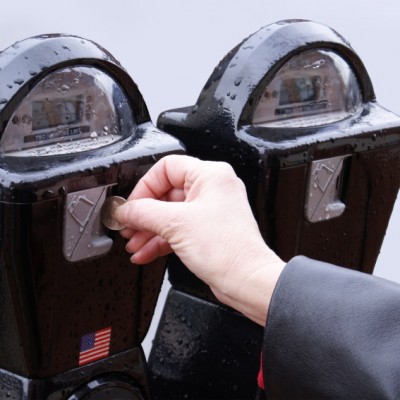
Prev
Next
Dynamic Pricing
Seattle and San Francisco use “dynamic pricing” on their parking meters. That means that the price to park goes up depending on the time of day and the location of the meter. For instance, if you are parking right in front of the Schnitz at 7 p.m. on a Saturday night, it’s going to cost you more than a $1.60 an hour.
Portland’s current meters could be programed for dynamic pricing, according to experts, and with 9,000 meters in the city, that could add up.
The Politics: Despite some grumbling, the city doesn’t need anyone’s permission to raising parking meter fees. Parking revenue is completely unrestricted, meaning it can be spent anywhere and on anything.

Prev
Next
License Registration
With 692,201 registered vehicles in the county in 2013 a $20 vehicle license registration fee, with a 20/80 split to the county (like with the current gas tax), could generate $11 million for the city every two years.
The Politics: This would have to go through the Multnomah County Board. The county doesn’t really need cash for infrastructure at the moment, as it has a few big federal grants lined up to pay for upcoming bridge repairs. The challenge would be offering the commissioners a deal sweet enough for them to take the political hit.
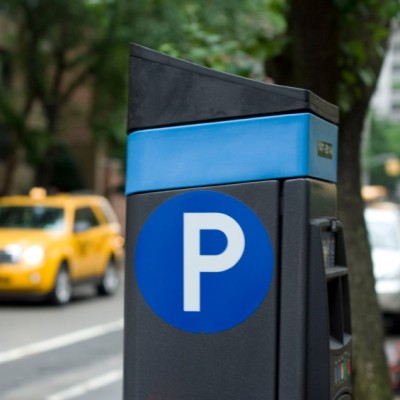
Prev
Next
More Parking Meters
A parking meter costs about $1 an hour to operate. So at $1.60 and hour, about $.60 is pure profit. More meters are already in the works for Northwest Portland. Meters in all major shopping districts from Southeast Hawthorne, Division and Belmont Streets to Northeast Alberta Street to North Mississippi and Williams Avenue could raise money for improvements in those areas.
The Politics: Neighbors and businesses would whinge endlessly. But many studies say that parking meters benefit businesses by keeping spaces turning over. Residents could be issued parking stickers to exempt them from charges.
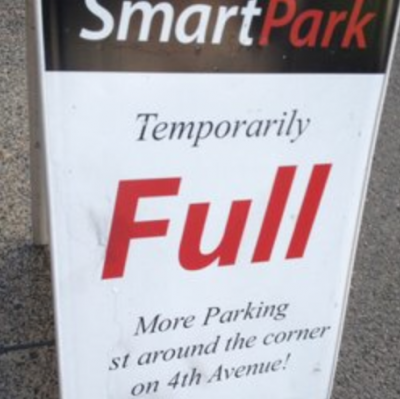
Prev
Next
Raise Smart Park Fees
The city controls 3,800 spaces in six downtown garages. Smart Park cost about $11 million a year to run, according to PBOT’s budget. All told parking charges from meters and Smart Park brings in $45 million a year but the system is not operated to maximize revenue. Dynamic pricing might be hard to implement at the garages but the city could raise the rates.
The Politics: Downtown business interests might complain that raising parking rates would stop people from shopping and visiting downtown. The public interest would have to decide if that’s a risk to take, given the alternatives are an income tax or tattered roads.
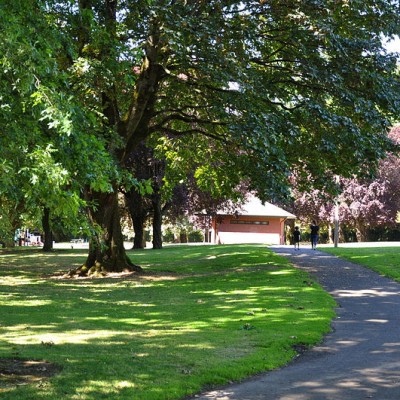
Prev
Next
Shift SDCs from Parks
System Development Charges are fees that different city bureaus level against new construction projects in Portland. Parks, PBOT, the water and environmental services bureaus can all level SDCs at developers.
The rationale is, if new development puts a strain on city infrastructure, like roads and sewer lines, then it should pay extra to upgrade the systems. However, most SDCs get charged to developments in the city’s center, while the revenue goes to pay for projects all over Portland.
Over the last four years, Parks & Rec has averaged about $9 million a year in SDC revenue. The city could pull the bureau’s power to charge and let PBOT charge more.
The Politics: It would be a fight with parks supporters. Parks has said it needs $49 million a year just for new parks acquisitions. But it might be more logical to raise that money through bonds, or repurposing taxpayer-owned golf courses, especially ones in park-starved parts of town.
Photo: Berkeley Park in SE Portland, via Wikimedia Commons

Prev
Next
Raise Retirement
Raise police and fire reitrement.
Police Chief Mike Reese announced his retirement this year at the ripe old age of 55. But he qualified for retirement much earlier, at age 50. Putting five years on the clock would certainly save the taxpayers some cash that could be used on roads or anything else.
The Politics: You’d have to face the union and that wouldn’t be pretty.
Photo: Former Portland Police Chief Mike Reese

Prev
Next
Reform Retirement
Portland’s Police and Fire Retirement Fund was set up by voters in 1948 and has resulted in a huge hole the public must now dig itself out of. Despite voter-approved reforms in 2006 and 2012, the obligation is still a fiscal time bomb. As of June 30, 2012, unfunded liability in the fund was in the neighborhood of $2.9 billion.
The Politics: Public employee pension obligations are the stuff of municipal bankruptcy court. It’s a hard fight, but reforms were suggested by Portland’s City Auditor’s Office as recently as Jan. 2013.
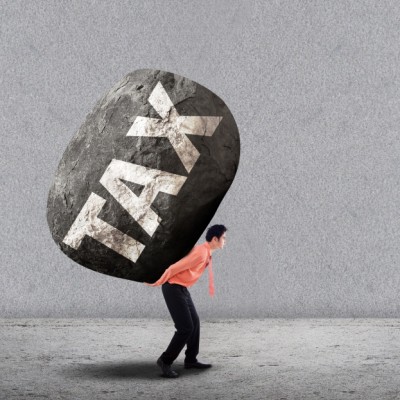
Prev
Next
Fix Tax Compression
In 1996, Measure 50 cut and capped property taxes across the state. It froze the assessed value of homes at their 1995 level and limited growth in value to three percent a year.
In Portland, the result is a system in which homes that have increased in value rapidly pay very little taxes and homes that haven’t increased in value much can pay sky-high taxes. The short hand for the squeeze in tax equity is “tax compression.”
The city loses about $24 million a year due to tax compression, according to the city auditor. If the city, county or state could figure out a way to fix the issue there could more money for everyone: They’ve had 20 years to think about it.
The Politics: There has been endless talk about tax reform in Oregon. The Governor put it as a major priority of his fourth term. All the old tax-revolt warriors have long since left the scene, but the political will to do much more than talk will be hard to find.

Prev
Next
Stop Urban Renewal
About $.25 of every $1 that the city gets in property tax revenue goes to pay down debt on urban renewal projects. Mayor Charlie Hales has talked about sunsetting urban renewal districts.
On the immediate horizon, the Eastside Industrial URA has the power to issue new debt up until 2018. One step forward would be to stop that right now.
The Politics: Urban renewal is a cash cow for commissioners and their pet projects. No one really wants the system to change. But if it’s a choice between taking a hit on pet projects or a city tax revolt, commissioners might support clipping their own wings a bit.

Prev
Next
Put PBOT Out to Bid
Private companies can pave roads and clean them too can’t they? What if they could do it for less money than the city? PBOT could put services like street repair and cleaning out to bid.
It might not save a lot of cash, but it might win trust with the voters by showing them that the city was trying to get the best price for the public’s money.
The Politics: “Privatize” is dirty word in liberal Portland. But then, "income tax" might prove to be even worse.
Related Articles
Enjoy this post? Share it with others.





 Email to a friend
Permalink
Email to a friend
Permalink



























 Delivered Free Every
Delivered Free Every
Follow us on Pinterest Google + Facebook Twitter See It Read It